Breaking caste barriers: stories of 5 Dalit entrepreneurs who reached the top
Once unimaginable and even unaccepted, India has witnessed a rise in Dalit entrepreneurship since the 1990s. We bring you stories of five first-generation entrepreneurs who fought the dual battle of economic mobilisation and social justice, and made it to the top.

All of us love a rags-to-riches story. In India, however, the hurdles between ‘rags’ and ‘riches’ are not economic alone. Caste plays a significant role in economic mobility.
According to a BBC report, more than half of India's billionaires belong to the traditional merchant classes, including Banias, Parsis, and Sindhis - a group comprising less than 1.5 percent of India's population. Brahmins and Kshatriyas form the next strata of billionaires in India. For a group that comprises 16.5 percent of population, there is no Dalit billionaire in India yet.
The problem of social ostracisation remains
While statistics suggest that there is slow and steady progress in the condition of Dalits, the problem of social ostracisation remains. According to a 2014 government report, over 44.8 percent of Scheduled Tribe (ST) and 33.8 percent of Scheduled Caste (SC) groups in rural India continue to live below the poverty line.
Further, an independent survey conducted in 2014 found that 88 percent State schools in Madhya Pradesh discriminated against Dalit children, with four out of five schools forbidding Dalit children from touching mid-day meals. Another survey conducted in Karnataka found half of its high-school dropouts to be Dalits.
The practice of untouchability was abolished as part of the fundamental rights given to each citizen under Article 17 of the Constitution of India. With Dr BR Ambedkar, a Dalit himself, as its principal architect, the Constitution also included measures to improve the socioeconomic conditions of Dalits, which included the reservation system.
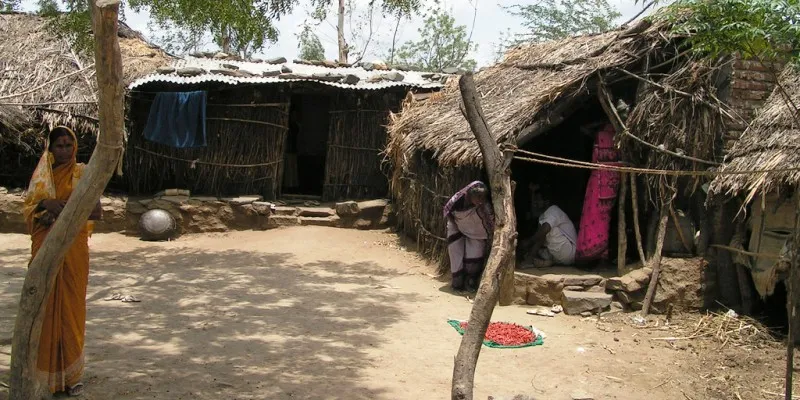
Phenomenal rise in entrepreneurship among Dalits
The reservation system has been a major subject of political debate. A study conducted by University of Pennsylvania questions its efficiency, owing to the falling opportunity in the public sector. The study, which compares the economic conditions of Dalits between 1990 and 2010, finds that in Uttar Pradesh, India's largest state by population, Dalits opting for government jobs has fallen from 7.2 percent to 6.8 percent in the East, and risen marginally from five to 7.3 percent in the West.
Thanks to the economic liberalisation of 1991, there is a steep rise in the condition of Dalits, the study suggests. Besides improved grooming, eating, and ceremonial consumption patterns, there is a phenomenal rise in entrepreneurship among Dalits. In eastern UP, percentage of Dalits owning their own business has gone up from 4.2 percent to 11 percent. In western UP, the rise is from 9.3 percent to 36.7 percent. Similarly, the proportion of Dalits working locally as mason, tailor master, driver etc has risen from 14 percent to 37 percent in the East, and from 9.3 percent to 42 percent in the West.
Chandra Bhan Prasad, one of the architects behind the study, and a Dalit activist and researcher, told The New York Times in an interview,
"This is a golden period for Dalits... Because of the new market economy, material markers are replacing social markers. Dalits can buy rank in the market economy. India is moving from a caste-based to a class-based society, where if you have all the goodies in life and your bank account is booming, you are acceptable."
We have tried to bring together stories of five Dalit entrepreneurs who went against all odds and made it big as entrepreneurs. Once unimaginable and even unaccepted, these Dalit entrepreneurs built multimillion dollar business out of scratch, and fought the dual battle of economic and social oppression.
1. Bhagwan Gawai – from construction worker to a CEO in Dubai
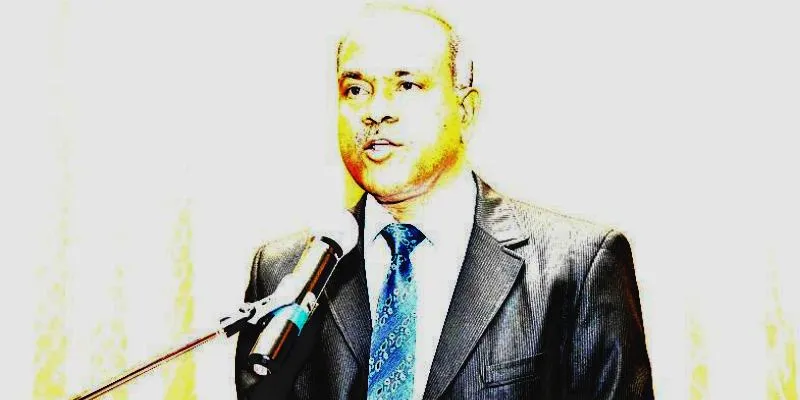
Bhagwan Gawai is the CEO and chairman of Saurabh Energy DMCC, a Dubai-based company that supplies petroleum products, petrochemicals and provides consultancy and support services in the aviation sector. Bhagwan, along with his mother and siblings once worked as a construction worker in Mumbai, before they settled in a slum. His family had migrated from rural Maharashtra to Mumbai, and worked hard to ensure Bhagwan got a decent education.
Bhagwan didn’t disappoint his family, scoring 85 percent in Class X. He joined a government oil company, HPCL, but was victim of caste-based discrimination. He quit his job and moved to Bahrain in 1991, where he joined ENOC as its fourth employee, and was eventually well known in the oil circles. In 2003, he, along with an Arab businessman, started their own company, making a turnover of $80 million in the first year. To support more entrepreneurs, he has identified 30 young Dalit achievers and is coaxing them to become successful investors through Maitreya Developers, another company he has started.
2. Kalpana Saroj – from a child bride to $112-million CEO
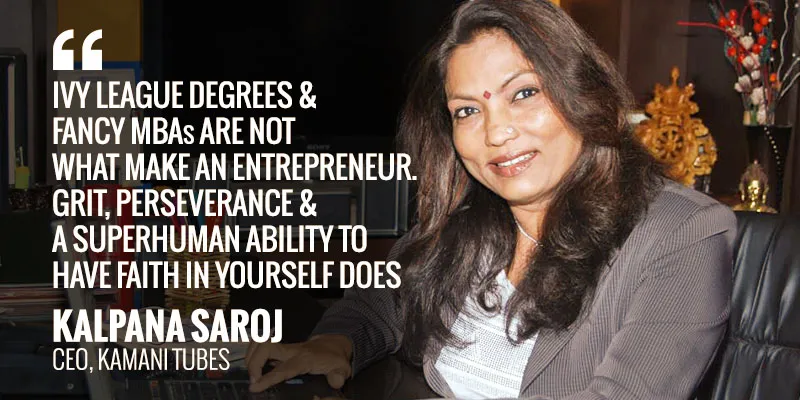
Serial entrepreneur Kalpana Saroj has tried her hand at producing films, real estate, and is currently the Chairperson of Kamani Tubes, a Mumbai-based company. Born in a village in Vidarbha to a police constable, Kalpana got married at the age of 12. Living in a Mumbai slum, she was subjected to physical abuse by her husband’s family members. She left her husband and returned to her village with her father, only to face social ostracisation.
Undeterred, Kalpana returned to Mumbai and started working while living with her uncle. With some saving and seed funding she ventured into a small furniture business. This was the beginning of her entrepreneurial journey, which continues even today. In 2001, she took over Kamani Tubes, and turned it into a profitable company. According to estimates, her personal assets are worth $112 million.
3. Raja Nayak – from running away from home to helming Rs 60-crore businesses
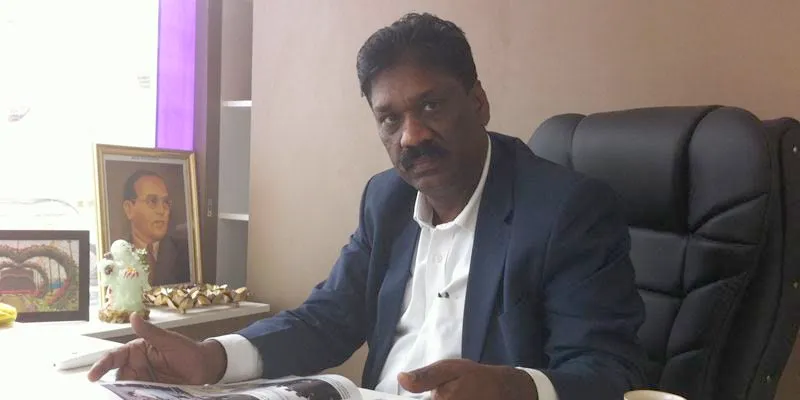
Raja Nayak was born to Dalit parents who had migrated from a remote village in Karnataka to Bengaluru. His family lived in poverty, with his father’s unsteady income and a family comprising four siblings. When Raja was 17, he got inspired by an Amitabh Bachchan film and ran away to Mumbai with the hopes of becoming a real-estate baron. While that venture didn’t end well with Raja returning home heartbroken, it also gave Raja the courage to keep trying.
He dropped out of school and started with selling t-shirts, and later diversifying into Kolhapuri chappals and footwear. With an ample appetite for risks and diversification, today Raja has a total turnover of Rs 60 crore from enterprises across diverse sectors including international shipping and logistics, corrugated packaging, packaged drinking water, wellness, and chia rice products. He currently serves as President of the Karnataka chapter of Dalit Indian Chamber of Commerce and Industries (DICCI), and runs schools and a college under the banner of Kalaniketan Educational Society for the underprivileged and disadvantaged sections of society.
4. Ratibhai Makwana – a farm-labourer’s son who built a Rs 380-crore business
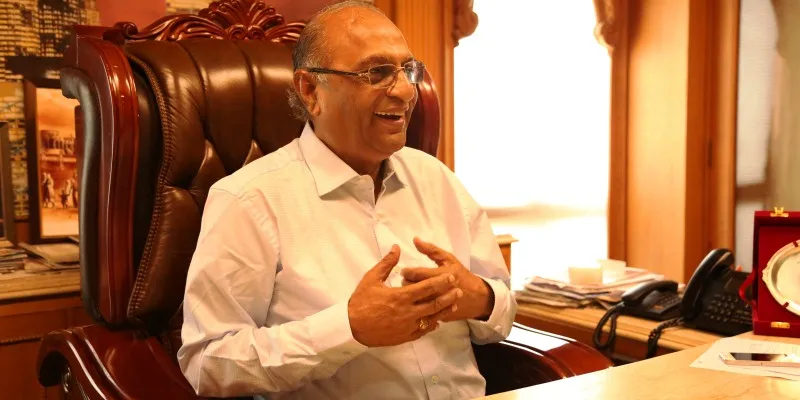
Ratibhai Makwana is the Managing Director of Ahmedabad-based plastic intermediaries company Gujarat Pickers Industries. Ratibhai’s father was a farm labourer, who later started making leather pickers. Going to school in a small town in Gujarat, Ratibhai faced discrimination due to his caste. When Ratibhai turned 18, he left college and joined his father’s trade.
He helped his father expand the business into plastic intermediates. Over the years, Ratibhai also led the company into sugar business in Uganda. The 56-year-old company makes annual revenues of Rs 380 crore, and employs around 3,500 people in its Ahmedabad factory, of which nearly 2,000 are Dalits.
5. Ashok Khade – the cobbler's son who built a business worth Rs 500 crore
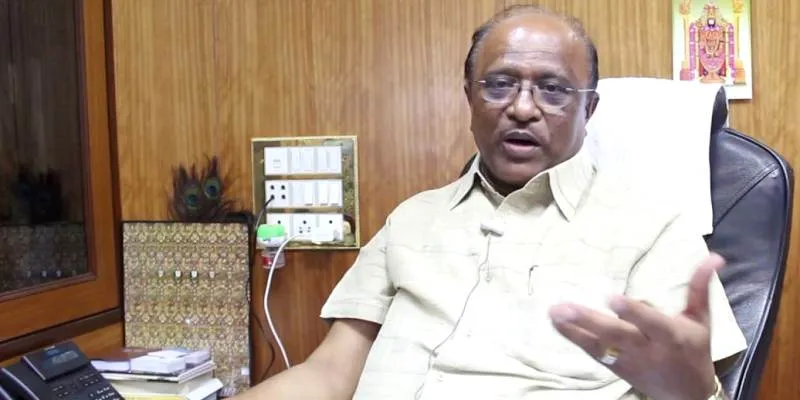
Ashok Khade is the Managing Director of DAS Offshore, an engineering company that builds and refurbishes offshore rigs and platforms. His father was a cobbler and worked under a tree in Mumbai. Braving all odds, Ashok finished his education from his village and went to college.
He then started working at a government-run shipyard in the city. After acquiring the required skills in offshore maintenance and construction, he started his own company, and delivered on the opportunities presented at him by the rising oil services industry during the 90s. Ashok’s company today provides job to 4,500 employees and has an annual turnover of Rs 500 crore.







